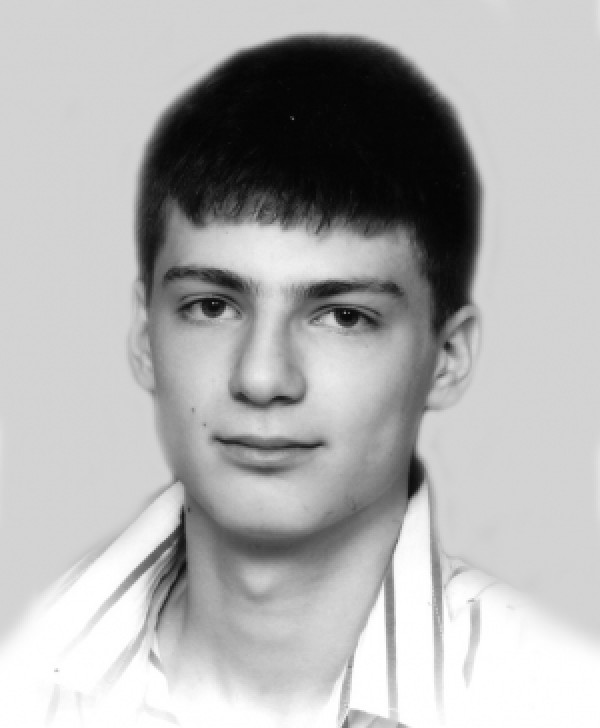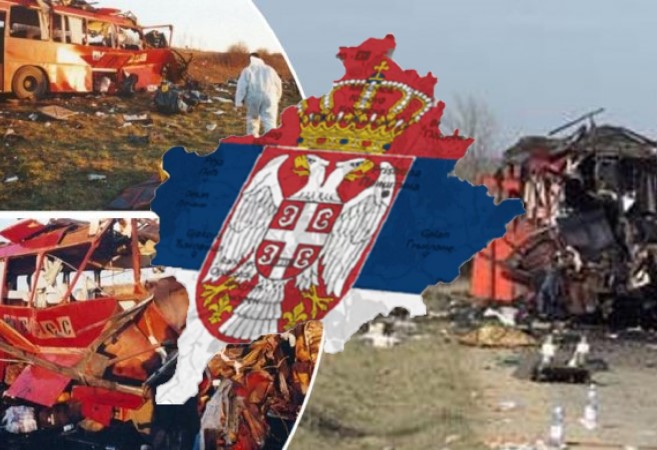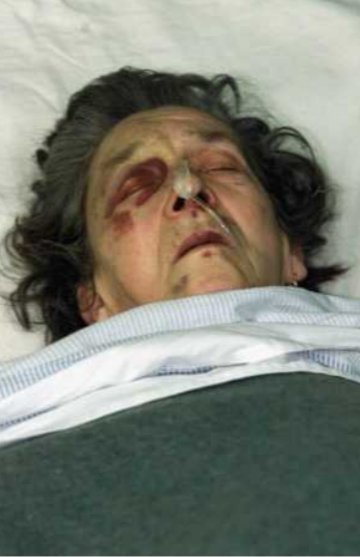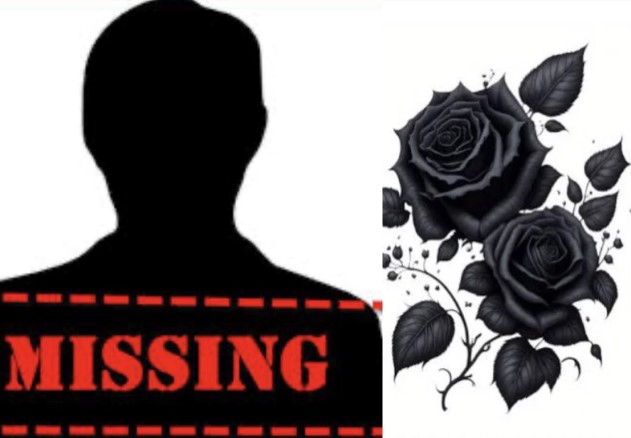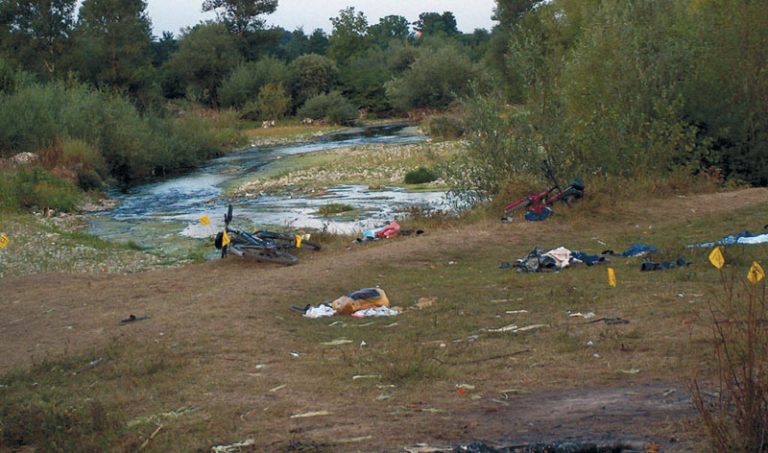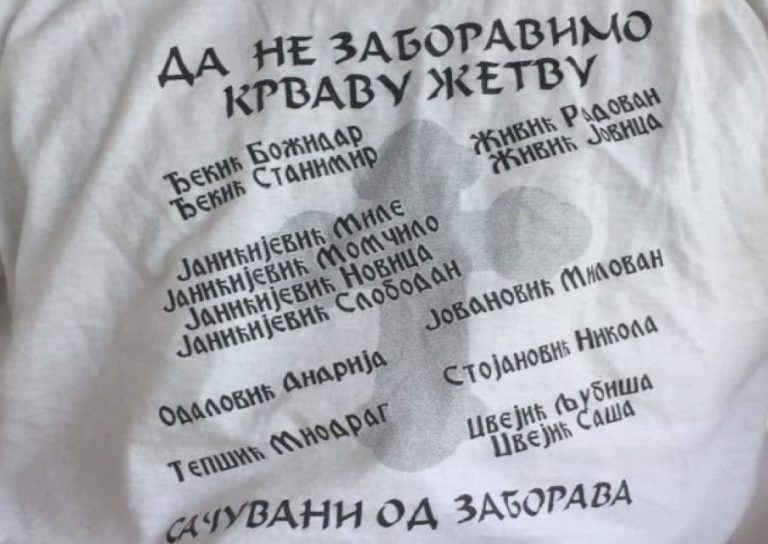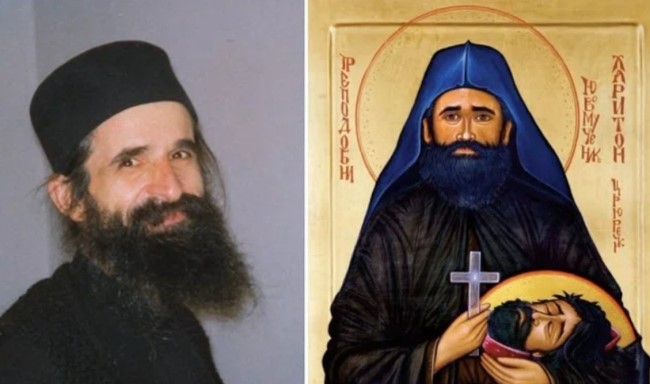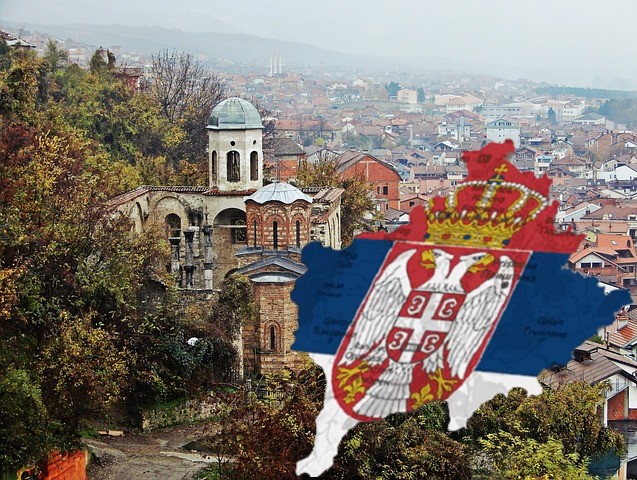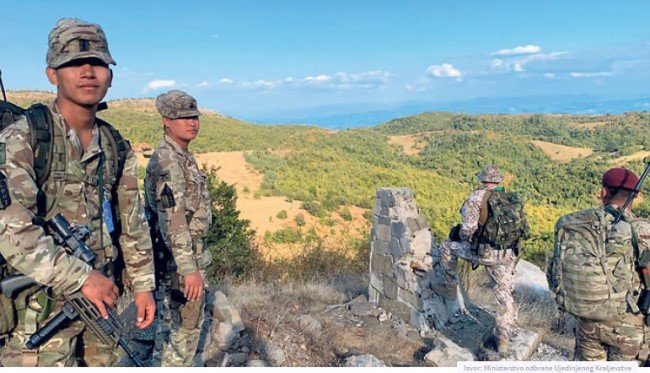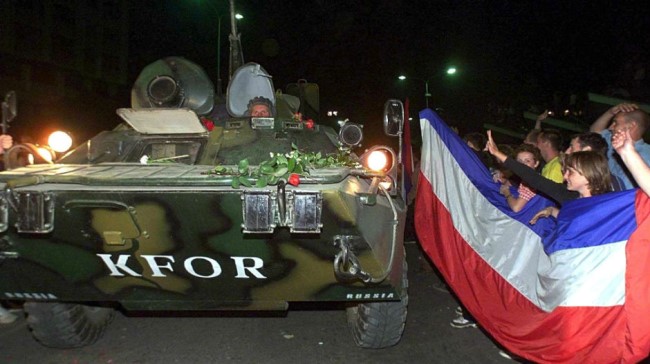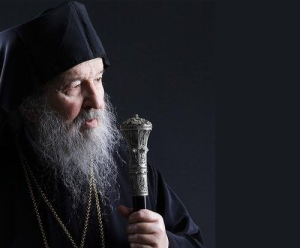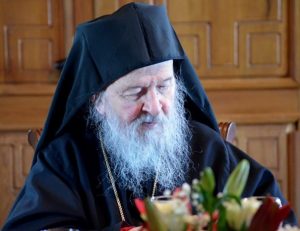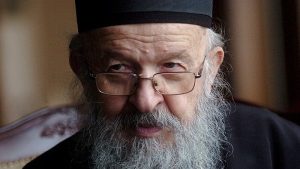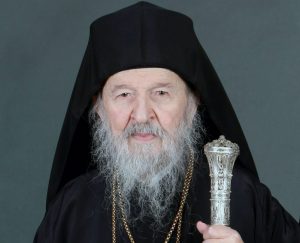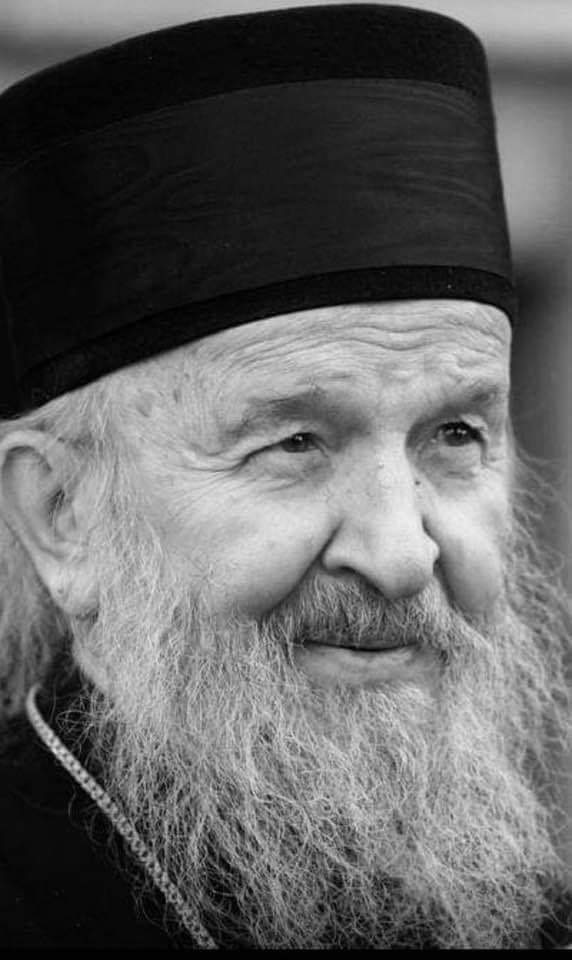
They also forged the signature of Patriarch Pavle in order to please the Americans
The state and the church since 1920, when the Patriarchate of Peć was supposed to be revived, to be the center of the Serbian Orthodox Church there, have been wrongly "defending" Kosovo. They don't actually defend him.
First of all, the Serbian Orthodox Church had to have its own position on Kosovo, and it did not have one, it was inclined to the wrong state policy even before Broz's time, points out Artemije Radosavljević, the anathematized bishop of Raško-Prizren. He is convinced that after the bombing and the rebellion of the Albanians in Kosovo, both the state and the church had to declare that Kosovo and Metohija is the occupied territory of the Serbian state, to publicize it in front of the whole world in the spirit of Urbi et Orbi. He even emphasizes that the Appeal for the defense of KiM is an empty and vague story, that it is only impotence, without ideas, strength and spirit.
In the second part of the exclusive interview for "Express", the bishop of the Raško-Prizren Diocese in exile, Artemije, continues the story of the events at the top of the Serbian Orthodox Church after his opposition to Joseph Biden, the vice president of the USA, visiting Visoke Decani without his blessing and the lawsuit he filed with the Court in Strasbourg against four states that did not protect the Serbs and their churches and monasteries in Kosovo after the vandal attack in March 2004.
Which bishops were most hurt by you not giving your blessing to Biden?
- But everyone jumped on Artemije to withdraw his decision. I do not withdraw the decision, and then the Parliament without my consent issues its announcement "Serbian hospitality throughout the centuries", and so on. And he was welcomed there as the prince of Theodosije and Sava.
What happened afterwards?
- Nothing on that matter, but when Biden went to America, that's when the intelligence service started working.
When did you found the company "Rade neimar"?
- By 2004, 115 churches and monasteries had been demolished. On the 17th of March 2004, another 35, that's 150. We were wondering what to do, what to wait for or what to do. In Kosovo, you don't have our companies, you don't have freedom of movement, procurement of materials, no conditions, and you have to work, you have to restore what was destroyed and build something new. Then we establish that diocesan center "Rade neimar", a construction company that will carry out those construction works. At that time, that memorandum appeared according to which everyone can participate in the renovation of our churches and monasteries. So, Greeks, Bulgarians and Shiptars from Kosovo. I opposed that decisively, with the reason that those who demolished those churches and monasteries cannot restore them. Money is given by Brussels, this one... No and no. It was a real storm when Patriarch Pavle signed a memorandum agreeing on the renewal, and then the delegation left for the Synod in the USA in 2005 with the aim of being received by the President of America.
At that time, the US president was George Bush Jr.
- When they heard in America that Patriarch Pavle's signature was withdrawn from that memorandum, all doors were closed to them. Then the intervention began to facilitate their visit there, so they convened the Synod at night, without the patriarch, without me, and made a decision to return the patriarch's signature. The synod, not the patriarch. Then they report it back to the US. It started from there. Why did I show resistance to the fact that the Shiptars could restore our churches and monasteries that they destroyed and burned... Well, they were calling our shrines in Kosovo anyway, saying that Dečani was built by a Gashi tribe, I don't know, and that Gračanica was Catholic and turned into an Orthodox temple, then the Monastery of the Virgin of Ljeviška... Well, now they are rebuilding it with their own money. So how? It's ours. It is our stolen cultural heritage. Even though Kosovo didn't join UNESCO two years ago, it's surprising.
Will it still be theirs?
- No, it's not finished. In that I see the responsibility of our church, our patriarchate for the current situation in Kosovo, in such an attitude towards Kosovo.
And in such logic and such thinking?
- In such thinking and such politics, because it was in accordance with the state policy, there they coincided, agreed. I don't know why they needed them, but the church did not have a clear and decisive position. Artemije did, and for that he had to pay a price.
You were a man of serious authority and one of forty bishops. Why did the Artemije's case cause such an earthquake? SPC has not experienced such a crisis for a long time as in 2010?
- Since 2005, immediately after the burning and demolition of churches and monasteries in Kosovo and Metohija... But you did not mention my lawsuit to the Court in Strasbourg. I sued the countries that have their soldiers in Kosovo and Metohija, their army, and they did not protect what they were obliged to protect. When I wanted to submit it, I received the blessing of the Synod for everything I take on, everything is blessed. I filed a lawsuit too.
And then they forged the patriarch's signature?
- Yes, and that is part of all that. The ambassador started coming to the Patriarchate, specifically the Italian ambassador, as they told me, as "here you award decorations to our units in Kosovo, and on the other hand you file a lawsuit against us." And then came the change of attitude of the Synod to withdraw the lawsuit, and it was a long story and a long struggle. Unfortunately, in my opinion, this is the root of the current situation in Kosovo Metohija and tomorrow's decisions that will take place. Let's say, five years ago, there were elections in Kosovo, in the independent state of Kosovo, the patriarch addressed the Serbs in Kosovo and invited them, from the Patriarchate of Peć, where he should sit, to go to the elections. Then the creation of the Union of Serbian Municipalities was promised. Nothing of that, it's been five years. Even if that community is created, it works according to the constitution and law of Kosovo. What can she do for Serbs?
What happens in court? What exactly are you being accused of? Different information was leaked through the media?
- The Synod filed a report to find the reason why they did this to Artemije - embezzled money. In a national crisis, it is the most sensitive point, a painful point. Thief, embezzled money, stole money from the poor of Kosovo. That is the story of Jeftić and Radović, who claimed that I have 24 million euros.
That you embezzled so much?
- No, but that I have so much. When he announced it, I replied: "Let him tell me where they are, I'll give until the last dinar." So, that's what "Rade neimar" did. I have blessed what is the priority to do. The finished buildings were put into operation, filled with monks, everything. Then they asked "why does he have that company, that money", without taking into account the circumstances in which the diocese in Kosovo lives and in which it should do something. It didn't concern them. That's why I say, it's all their fault, believe me. Then the first report from the Synod about embezzlement, that some non-existent fictitious works were paid from the diocesan coffers, and it was signed by a man who sat in those buildings, drank coffee, performed the liturgy... And for him, these are fictitious works of the building.
Who signed the report against you?
- Amfilohije. He signed that application. You made me tell him his name. And then it started, investigative processes, witnesses, one, the other, the third, us, the accused, me, Predrag Subotički, Jelena Šubarević and father Simeon, my personal secretary... We found ourselves on the wallpaper. At first, only two: Predrag and Simeon, and after a year or two we were added, so it was merged into one process and it dragged on for eight years. They did not establish anything. Every month or two we have a hearing, and at the age of 83 I have to go there and sit for two or three hours. You don't say a word, but you are present there. Then there was that main trial, where we spoke. I gave my defense, what my life's work was in Kosovo. I have no defense but to tell the truth, and this is the truth. Then the experts were appointed to go to Kosovo to estimate how much this monastery, that monastery, reconstruction and so on cost. They found there, I don't know, what it cost, what it was supposed to cost, and they themselves have no idea how the material was procured, how the workers came, how it was handled, but they are the same according to the order, the suggestion that they have to do it they submitted their reports and now the witnesses are testifying about it, one, the other, the third. One thing that I had to submit to the court as facts, which I had no intention of ever publishing, was how we restored those monasteries and churches. Whenever I went to America or Europe or anywhere because the people were there, I spoke to the people, addressed them, served liturgies, gave sermons and the people collected contributions. This is for the needs of the church in Kosovo, this is for the needs of the people in Kosovo, this is for you, and I respected it to the last letter, and not only that, but I recorded everything, when I came, sorted and recorded and handed it to the treasurer of the diocese what is for the diocese. In those ten years, I paid one million and one hundred and seventy-three thousand euros to the Diocese of Raška-Prizren.
In what ten years?
- Since I started going to America, after the bombing. What was for the people, the poor in Kosovo, I gave, they came every day, a sick child, that one's father died, this one has no bread. I gave, but God taught me to do it, everything on the receipt, date, when, to whom, why, how much, and then I recorded those receipts in one large notebook and at the end of each year I reduced the balance of what was given. When in the end everything was reduced, during that time, two million and four hundred thousand euros were paid into the treasury and given to the people through my hands, not through the treasury, but through my hands. The money that was paid was used to pay for the works for the restoration of churches and monasteries. Of course, also what the state gave. At that time, there was the Ministry for Kosovo, and the Ministry of Religions, it all went through the books and that's all fine. Now, if somewhere in Belgrade, for example, cement cost 20 euros, and in Kosovo 25, I don't really know that. Does a cubic meter of concrete cost, how much do I know, but the experts found that it was overpaid. Those documents of mine are still in court today.
Let's go back to the story we started, how can one bishop shake the Serbian Orthodox Church to its foundations?
- Before that, I would only say about those 12 or 24 million euros where they are. If someone claims that Veljo Perović has five million euros in his pocket, he has to prove where he got it from, right? I would like the gentlemen who attribute it to Artemije to show from which pile Artemije took the twenty-something million euros. Where do you get the money there? When they can cover it, then I surrender.
And you will give them everything?
- Up to one dinar. Imagine, that's how life is in Kosovo, and they know, they were in Kosovo. Admittedly, they worked around Kosovo much more than they could and should have, but they knew how to live. Where did Artemije get 12 or 24 million euros, for God's sake? Where did it come from in the pile over there, who left it there? That is the basic question - where does the money come from? So let them answer.
Does and how does the SPC defend Kosovo today? You served in Kosovo for a long time, you led the diocese for 19 years?
- The way it shouldn't be.
How do you mean that?
- We all know, we listen, we see how the negotiations are going in Brussels. Allegedly, between Belgrade and Pristina. Lie. These are negotiations between two countries, Serbia and Kosovo. Because the mayor of Belgrade and the mayor of Pristina never negotiated in Brussels, but the president of Serbia and the president of the state of Kosovo. For Brussels, it is a country. And it's been so many years since the first Brussels Agreement was signed. Everything was agreed to. At that time, the church was determined against that signature, and later it accepted it and all other signatures and talks and agreements, which were always to the detriment of the Serbian people, the state of Serbia, and to the detriment of our Kosovo and Metohija. Today, he killed himself, proving that "we are ready to compromise, but we are not ready to lose everything, but for both sides to be equally dissatisfied or satisfied". What would you give up in Kosovo? What is the solution, and here we are listening to the patriarch who says about him: "he fights like a lion for Kosovo, we thank God for sending us Vučić". Well, that is the position of the Serbian Orthodox Church.
There are claims that some bishops and bishops live in great sin, that they expelled Jesus Christ from the church?
- Every heresy throws Jesus Christ out of the church, and what you mentioned, I can't say that for anyone, but I know about those stories.
Do you mean, first of all, Vasilije Kačavenda?
- I will not comment. It's not mine, nor am I the one who should solve it. It is said so.
What will happen to the Church of Christ the Savior in the center of Pristina, next to the University. We see that the Albanians are trying to destroy the temple at any cost?
- I don't want to be a prophet, but I fear the day when Kosovo is recognized as an independent state in any way, because what you say will happen. They were already turning it into a public WC.
Are there initiatives to return to SPC?
- I did not leave the SPC.
Is there anything that could be corrected there?
- Exists. That they renounce their ecumenism and return to the path of the holy fathers and that such unity be established.
Only on that condition?
- Yes.
And does the top of the SPC set any conditions for you?
- No, we don't have any contacts at all. But he asked for some, specifically Amfilohije, he is so aggressive. Once he came to Bistrica, at eight o'clock in the evening, without notice and I didn't drive him out, I received him, and he spoke for two hours and I was silent for two hours.
Did he repent?
- God forbid! Montenegrin. He said - what does he think, the whole Parliament needs to come and bow to him! I'm not asking for anything, but for him to correct his mistake, that's what I'm asking.
The last time you were in Kosovo was when you held a liturgy in Zubin Potok, is that right?
- I was there once more until Zvečan, in 2011 or 2012, but I went to Kosovo in 2011, when those barricades were there and when the people were fighting on the barricades. They had no support from the state and then I and my monks went to be with them to provide them with support and understanding, and what happened, the entire security service, the army, the police stood up to stop us. All roads leading to Kosovo were blocked, no one could pass. We reached Kraljevo, and then we heard that people were supposed to leave Belgrade in organized buses. The police came, they just didn't let anyone pass, and they stopped us there and took us back. They want to take me to Belgrade, but I say no. Must! - Does not have to. And I tell that driver on the Ibarska highway to stop. He stopped, and they came. What should they do, beat me - it doesn't work. I'm not going to Belgrade. Where? To my monastery, in Ljuljake. They are calling now, I don't know who or what. They accepted it and took us to Ljuljake. We served there, prayed to God and then we came alone to our Bistrica. Well, then a police vehicle stood in front of our house for a month, they were guarding Artemije.
Do you have a problem with the holy fathers at the top of the church or with the state?
- I have a problem with both.
What does your case have to do with the state?
- Well, because the official church cooperates with the regime and the state.
The church should cooperate on some administrative matters, the church should tell the state that it is not good to do something?
- But the state needs the support of the church. They always asked for it. The church is one pillar and everyone wanted to have good relations with the church, but only as long as the church favors them. If he says anything, then he has no right to interfere with the state, but if he blesses, then he has the right.
Do you have any communication with Bishop Teodosije and Abbot Sava?
- None, God forbid.
How did you grow apart?
- We did not grow apart. He came there.
Did you expect him to go with you?
- Him? I'm not. Because Teodosije started working against his bishop in 2004. Yes, he was doing that. Aided by Atanasije and Amfilohije who were the wind at his back.
In recent years, little by little, the question of a possible visit of the Pope to Serbia has become topical? What is your position on that?
- Who cares? Does the pope not have the right to come to Serbia?
But there are some relationships, the role of the Roman Catholic Church in the Second World War and its participation in the pogrom of Serbs, Jasenovac, Stepinac...?
- No, it doesn't matter. It is important, but it is not essential. He can come. There are Catholics in Serbia, right? He can come to visit his believers, as I visit my monasteries. That is his right, but he wants to use it politically, in the spirit of ecumenism. He would come to Serbia, but to be accepted by the Serbian Orthodox Church. In other words, to declare him the head of the entire Christian Church, and of Orthodoxy. This is where disagreements arise in the Parliament itself. Not everyone is ready to accept that yet. They always cite the example of Jasenovac, Jadovno, suffering, but no one asks a dogmatic question - whether it is possible to pray with him, serve a liturgy or any other prayer, and that is the essence. These are the other consequences of all that. Father Justin wrote an article 40 years ago that was published in books, about the infallibility of the European man, and he talks about the pope, the papacy, and Catholicism. Father Justin knew what happened during the Second World War, what happened in Jasenovac. He knew all that well and experienced it painfully, but in that article he did not mention it in a single word, instead he remained in the field of theology, dogmatics, church teachings and that is why that article resonated so much, not only in Orthodoxy but also in the Catholic world.
I was convicted without a court
How can a single bishop threaten the Serbian Orthodox Church and how did that story about you lead to such a serious upheaval that has not been remembered at the top of the church in recent times? What happened? What is your strength? Why do they do that?
- I don't have the strength, I really don't have the strength. Strength is in truth, strength is in God.
That's what old man Zosima used to say?
- Well, yes. You know how it is, I'm not endangering anyone. They accuse us of being a sect, a parasynagogue, traitors, schismatics, of breaking the people and the church and so on. They say that Artemije must leave the church, and that they will expel him, he was expelled from the SPC. What did Artemije introduce to make him a schismatic or a heretic or a sectarian? What did he do? Was the trial of Artemije carried out? It's not. I was convicted without a court. In 2010, I received a so-called indictment against me before the Parliament. Thirty or so parties and the current patriarch is asking for the indictment to be read at the Parliament. The one who wrote it read it. Everyone is silent. Patriarch: "What do you have to say about this?" I said, nothing. So, did you give Artemije time to respond to the indictment? Every court that accuses someone of something offers a deadline. When Dionisije was accused in 1964, also for political reasons, the indictment was written in Belgrade and he was given three months to respond to it. He asked for six months, he wasn't given it, but he was given three months, and I don't think there's a clause at all that he should respond by then and there. Nothing. How can I talk about it now, I don't have an archive in my pocket.
It is a basic legal postulate, the right to appeal?
- Of course. It is a mandatory legal form... And then they made a decision to persecute the diocese, confiscate the diocese. First, we were only suspended in February, and in May there was confiscation, or as they would say, and in November came the clearance. You saw how everything ebbed and flowed. Be it a group, be it an individual. Here, let's say, at first, a heresy appeared in the east, Constantinople, Byzantium, but Rome, which was an Orthodox patriarchate, convened a council and condemned it. A heresy appeared in the west, and those in the east were condemned by the Council. So, there was a struggle, it lasted for a hundred and a half years or more, with Arianism, with iconoclasm, with various heresies, but there were also heresies where one man, and not a bishop, but a monk with his two disciples, also a monk , protected the Orthodox Church and defended and defended. Saint Maximus the Confessor, with his two disciples Anastasije. He then fought against a vicious heresy and he was severely punished and died in exile. And after twenty years. At the Sixth Ecumenical Council, his teaching was the teaching of the Orthodox Church, and heresy was condemned. One man. So, here I am not saying that I am the one, but that is exactly what happened in the Serbian church. Or as our people say, the hated house stays.
Who elects the patriarch of the Serbian Orthodox Church
Many believers are convinced that the Serbian Orthodox Church has not been the same since the death of His Holiness Patriarch Pavle?
- Well, obviously it is not the same because this one, who was elected on January 22, 2010, already attacked Kosovo and Metohija on February 10.
What exactly changed in the SPC after Patriarch Pavle?
- And the changes in the liturgy and everything happened during Bishop Pavle's time. When I was still there, parliamentary decisions were made that have not been respected even to this day: to serve as it has been served for centuries in our church, starting with the Šumadija eparchy, and then they moved to Žička, then Hercegovačka so the contagion is spread everywhere because it corresponds to ecumenism. To be as close as possible to Roman Catholics.
Does politics participate in the election of the patriarch of the Serbian Orthodox Church?
- It certainly has an influence, it had before, especially before the Second World War. The king wondered, the government wondered. After the war, Tito and the Communist Party wondered, now those in power are wondering. When there was an election for the patriarch, in 2010, some other candidates appeared, Grigorije Hercegovački, young, promising, free-spirited, then Amfilohije.
As far as we know, Bishop Grigorije was Boris Tadić's candidate?
- Well, yes. The government pushed him. And so, it means that politics has an impact. In what way and how, I don't know. I know what it was like after World War II. The election of the patriarch was church-popular, bishops, archimandrites and abbots of large monasteries and two civilians from each eparchy were invited to informative talks and it was ordered.
It was rumored that Ranković chose Patriarch German?
- Probably, but I know that Patriarch German was the first Serbian patriarch who created two schisms - Macedonian and American. Both at the request of the state.
The Macedonian church was created by communists?
- I know, but with the consent of Patriarch German. Because he agreed to be called the Patriarch of the Serbian and Macedonian Church. He was a two-headed patriarch for a time.
Urbi et orbi
A group of intellectuals appeared who wrote the Appeal for the Defense of Kosovo and Metohija. It was also signed by 11 bishops of the Serbian Orthodox Church?
- What about that appeal? Who takes it into account? At first, they said that Amfilohije made it, then that he just signed it, but until now we talked about Amfilohije's role in Kosovo. Is this a defense? Signature or words? Just so you know. Therefore, we should first see what they contributed to this, and they contributed a lot. And now, those who signed, 11 bishops, are mostly students of Amfilohije and Atanasije.
Including Zagreb's Porfiri?
- He is educated, but you know who is educated, the one who has the image of God in him.
What was the Serbian Orthodox Church supposed to do in Kosovo to defend Kosovo?
- To have an attitude. She didn't have that attitude and she doesn't have it, and that's what should have been done maybe in 1920, to revive the Patriarchate of Pec, to have the center of the Serbian Orthodox Church there, and then all this wouldn't have to happen.
Will the exiled Serbs ever return to Kosovo?
- Now, for example, in 1999, 250,000 Serbs were expelled from Kosovo. For several years it was said according to Resolution 1244 that all exiles have the right to return to their homes, and in the first years it was said in talks and negotiations. In the last ten years, no one has said a word about it. They were sacrificed. On the contrary, they are talking about the Association of Serbian Municipalities. Which municipalities? On what basis will they work and what will they contribute? What are the Serbs doing for the Serbs in Kosovo, those who are in the assembly of Kosovo, in the government of Kosovo, ministers in the government of Kosovo? What can they contribute to the poor whose cow was stolen, whose tractor was taken away, who were killed, wounded? To this day, it is done in Kosovo. As it were, there isn't a day that something doesn't happen. We only have, "we strongly condemned". That is all our struggle. And we expect to do this and that. What you expect? We leave it to the European Union, which has no alternative. So, everything is allowed. We will sacrifice everything, including Kosovo, in order to enter there. What awaits us there? Honey and milk?
They teach us to forget our past and have a future?
- Imagine, for example, he said just yesterday on Dnevnik - we should take care of the land that we will leave to our descendants, not the land of our ancestors. What are you leaving to your children and future generations? On what will they base their identity, their personality, their faith if we lose Kosovo?
What should we do?
- I've said it and I'll say it again. Very simply, it should have been done back in 2008, when that state was proclaimed, when Umnik was replaced by EULEX. Then it was necessary to declare Urbi et Orbi, which means officially that the Government and Parliament of Serbia declare that Kosovo is an occupied part of the state of Serbia, period. There is no war, we do not call for war, we do not have to die, but that occupied territory will always be Serbian. Of course, we lived under occupation for many years, for centuries. We know how life is, it is not easy, but we lived and worked to liberate that territory. If that had been done, we would not have gone to die in Kosovo, because in Kosovo there would have been a war with America, with NATO, and we cannot and will not do that, but God's plans are different. We must preserve it as part of our country, even if it is under occupation. Well, that was what had to be done. Today he did not want to do that, because he certainly made many promises to many people, and now to Merkel when he was there yesterday.
Interview of Bishop Artemije for the weekly "Ekspres" (Part II)
Source: Nedeljnik EKSPRES, no. 101, 29 March 2018.

